Mercedes E Class vs Vauxhall Astra – Which model is better for everyday use?
Two cars, one duel: Mercedes E Class meets Vauxhall Astra.
Which one wins in performance, efficiency and value for money? Find out now!
Costs and Efficiency:
Price and efficiency are key factors when choosing a car – and this is often where the real differences emerge.
Vauxhall Astra has a decisively advantage in terms of price – it starts at 25200 £, while the Mercedes E Class costs 50500 £. That’s a price difference of around 25299 £.
Fuel consumption also shows a difference: Mercedes E Class manages with 1.50 L and is therefore convincingly more efficient than the Vauxhall Astra with 2.20 L. The difference is about 0.70 L per 100 km.
As for range, the Vauxhall Astra performs clearly better – achieving up to 419 km, about 303 km more than the Mercedes E Class.
Engine and Performance:
Power, torque and acceleration say a lot about how a car feels on the road. This is where you see which model delivers more driving dynamics.
When it comes to engine power, the Mercedes E Class has a convincingly edge – offering 585 HP compared to 225 HP. That’s roughly 360 HP more horsepower.
In acceleration from 0 to 100 km/h, the Mercedes E Class is convincingly quicker – completing the sprint in 4 s, while the Vauxhall Astra takes 7.50 s. That’s about 3.50 s faster.
In terms of top speed, the Mercedes E Class performs minimal better – reaching 250 km/h, while the Vauxhall Astra tops out at 235 km/h. The difference is around 15 km/h.
There’s also a difference in torque: Mercedes E Class pulls clearly stronger with 750 Nm compared to 360 Nm. That’s about 390 Nm difference.
Space and Everyday Use:
Beyond pure performance, interior space and usability matter most in daily life. This is where you see which car is more practical and versatile.
Both vehicles offer seating for 5 people.
In curb weight, Vauxhall Astra is clearly perceptible lighter – 1341 kg compared to 1810 kg. The difference is around 469 kg.
In terms of boot space, the Mercedes E Class offers noticeable more room – 540 L compared to 422 L. That’s a difference of about 118 L.
When it comes to payload, Mercedes E Class distinct takes the win – 640 kg compared to 509 kg. That’s a difference of about 131 kg.
Who comes out on top?
Overall, the Mercedes E Class shows itself to be wins the duel decisively and secures the title of DriveDuel Champion.
It convinces with the more balanced overall package and proves to be the more versatile choice for everyday use.
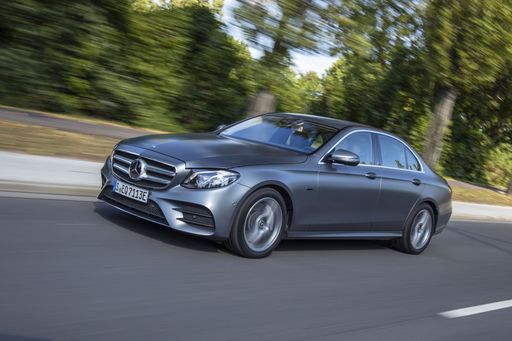
Mercedes E Class
Mercedes E Class
The Mercedes-Benz E-Class Saloon epitomises sophistication and innovation, offering a seamless blend of elegant design and cutting-edge technology. Its refined interior ensures exceptional comfort, making every journey a luxurious experience. The driving dynamics are impressively balanced, providing both agility and smoothness, perfect for both city driving and long-distance cruising.
details @ group-media.mercedes-benz.com
@ group-media.mercedes-benz.com
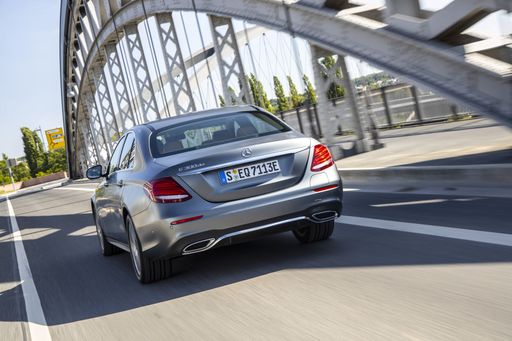 @ group-media.mercedes-benz.com
@ group-media.mercedes-benz.com
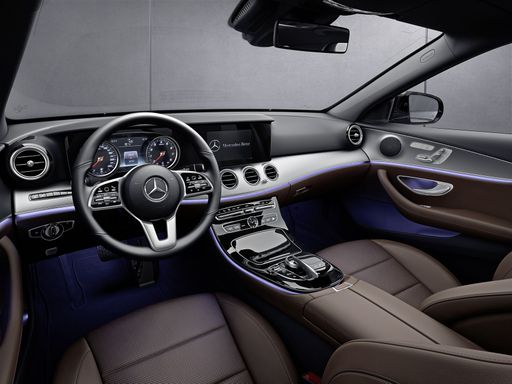 @ group-media.mercedes-benz.com
@ group-media.mercedes-benz.com
Vauxhall Astra
The Opel Astra exudes a sleek and modern design, making it a standout choice in the compact car segment. Its interior is thoughtfully crafted, providing both comfort and cutting-edge technology for an enhanced driving experience. The vehicle is also celebrated for its efficient performance, adeptly balancing power with fuel economy to suit urban and long-distance journeys alike.
details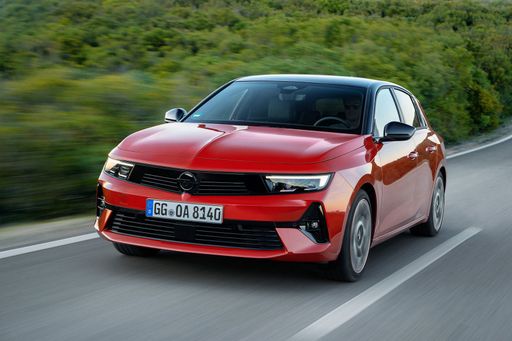 @ www.media.stellantis.com
@ www.media.stellantis.com
 @ www.media.stellantis.com
@ www.media.stellantis.com
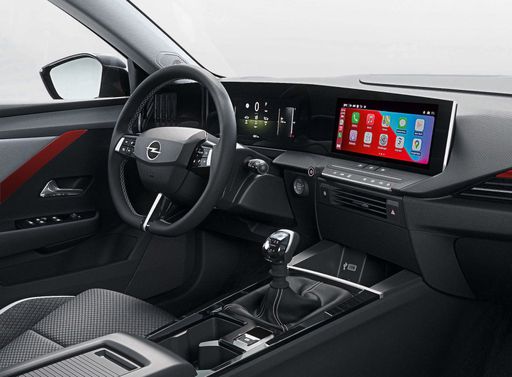 @ www.media.stellantis.com
@ www.media.stellantis.com

|

|
|
|
|
Costs and Consumption |
|
|---|---|
|
Price
50500 - 119700 £
|
Price
25200 - 40500 £
|
|
Consumption L/100km
1.5 - 7.5 L
|
Consumption L/100km
2.2 - 6 L
|
|
Consumption kWh/100km
-
|
Consumption kWh/100km
15.40 kWh
|
|
Electric Range
101 - 116 km
|
Electric Range
82 - 419 km
|
|
Battery Capacity
21.20 kWh
|
Battery Capacity
51 kWh
|
|
co2
39 - 172 g/km
|
co2
0 - 135 g/km
|
|
Fuel tank capacity
50 - 66 L
|
Fuel tank capacity
42 - 52 L
|
Dimensions and Body |
|
|---|---|
|
Body Type
Sedan
|
Body Type
Hatchback
|
|
Seats
5
|
Seats
5
|
|
Doors
4
|
Doors
5
|
|
Curb weight
1810 - 2390 kg
|
Curb weight
1341 - 1736 kg
|
|
Trunk capacity
370 - 540 L
|
Trunk capacity
352 - 422 L
|
|
Length
4949 - 4959 mm
|
Length
4374 mm
|
|
Width
1880 mm
|
Width
1860 mm
|
|
Height
1468 - 1480 mm
|
Height
1432 - 1488 mm
|
|
Max trunk capacity
-
|
Max trunk capacity
1268 - 1339 L
|
|
Payload
530 - 640 kg
|
Payload
414 - 509 kg
|
Engine and Performance |
|
|---|---|
|
Engine Type
Petrol MHEV, Plugin Hybrid, Diesel MHEV
|
Engine Type
Petrol, Diesel, Electric, Petrol MHEV, Plugin Hybrid
|
|
Transmission
Automatic
|
Transmission
Manuel, Automatic
|
|
Transmission Detail
Automatic Gearbox
|
Transmission Detail
Manual Gearbox, Automatic Gearbox, Reduction Gearbox, Dual-Clutch Automatic
|
|
Drive Type
Rear-Wheel Drive, All-Wheel Drive
|
Drive Type
Front-Wheel Drive
|
|
Power HP
186 - 585 HP
|
Power HP
130 - 225 HP
|
|
Acceleration 0-100km/h
4 - 8.5 s
|
Acceleration 0-100km/h
7.5 - 10.6 s
|
|
Max Speed
222 - 250 km/h
|
Max Speed
170 - 235 km/h
|
|
Torque
320 - 750 Nm
|
Torque
230 - 360 Nm
|
|
Number of Cylinders
4 - 6
|
Number of Cylinders
3 - 4
|
|
Power kW
137 - 430 kW
|
Power kW
96 - 165 kW
|
|
Engine capacity
1993 - 2999 cm3
|
Engine capacity
1199 - 1598 cm3
|
General |
|
|---|---|
|
Model Year
2024 - 2025
|
Model Year
2023 - 2025
|
|
CO2 Efficiency Class
E, F, B, D
|
CO2 Efficiency Class
D, A, C, B
|
|
Brand
Mercedes-Benz
|
Brand
Vauxhall
|
Is the Mercedes E Class offered with different drivetrains?
The Mercedes E Class is offered with Rear-Wheel Drive or All-Wheel Drive.
The prices and data displayed are estimates based on German list prices and may vary by country. This information is not legally binding.
